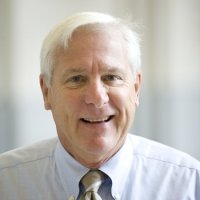Globalization and America's Trade Agreements
While the United States has benefited tremendously from trade agreements in the past, a number of political and structural challenges raise the question of whether trade will remain a key driving force for growth. There are currently two major deals that are moving toward completion. If successful, the Trans-Pacific Partnership (TPP) and the Trans-Atlantic Trade Investment Partnership (TTIP) will fundamentally reshape the international trade landscape. TPP and TTIP will also be the foundation for future trade pacts, including further negotiations in the World Trade Organization.
In his book Globalization and America’s Trade Agreements, Wilson Center senior scholar and former assistant U.S. trade representative William Krist assesses the effect of trade deals on the U.S. economy over the past three decades. He also outlines a way forward to ensure that pending agreements can promote the national interests of the United States.
Former assistant secretary of the Treasury for international affairs and director emeritus of the Peterson Institute for International Economics C. Fred Bergsten will join as a discussant.
Northeast Asia associate Shihoko Goto will moderate the discussion.
Speakers

Former Senior Vice-President, American Electronics Association, Washington, DC
Hosted By

Indo-Pacific Program
The Indo-Pacific Program promotes policy debate and intellectual discussions on US interests in the Asia-Pacific as well as political, economic, security, and social issues relating to the world’s most populous and economically dynamic region. Read more


Latin America Program
The Wilson Center’s prestigious Latin America Program provides non-partisan expertise to a broad community of decision makers in the United States and Latin America on critical policy issues facing the Hemisphere. The Program provides insightful and actionable research for policymakers, private sector leaders, journalists, and public intellectuals in the United States and Latin America. To bridge the gap between scholarship and policy action, it fosters new inquiry, sponsors high-level public and private meetings among multiple stakeholders, and explores policy options to improve outcomes for citizens throughout the Americas. Drawing on the Wilson Center’s strength as the nation’s key non-partisan policy forum, the Program serves as a trusted source of analysis and a vital point of contact between the worlds of scholarship and action. Read more


Mexico Institute
The Mexico Institute seeks to improve understanding, communication, and cooperation between Mexico and the United States by promoting original research, encouraging public discussion, and proposing policy options for enhancing the bilateral relationship. A binational Advisory Board, chaired by Luis Téllez and Earl Anthony Wayne, oversees the work of the Mexico Institute. Read more


Canada Institute
The mission of the Wilson Center's Canada Institute is to raise the level of knowledge of Canada in the United States, particularly within the Washington, DC policy community. Research projects, initiatives, podcasts, and publications cover contemporary Canada, US-Canadian relations, North American political economy, and Canada's global role as it intersects with US national interests. Read more


Global Europe Program
The Global Europe Program is focused on Europe’s capabilities, and how it engages on critical global issues. We investigate European approaches to critical global issues. We examine Europe’s relations with Russia and Eurasia, China and the Indo-Pacific, the Middle East and Africa. Our initiatives include “Ukraine in Europe”—an examination of what it will take to make Ukraine’s European future a reality. But we also examine the role of NATO, the European Union and the OSCE, Europe’s energy security, transatlantic trade disputes, and challenges to democracy. The Global Europe Program’s staff, scholars-in-residence, and Global Fellows participate in seminars, policy study groups, and international conferences to provide analytical recommendations to policy makers and the media. Read more
